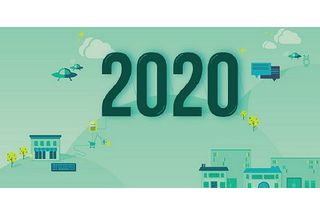Revenue Management trends at the end of the decade, or Hindsight 2020

Revenue Management is a set of optimal strategies that are aimed to yield the highest potential revenues and profits for capacity-constrained and perishable assets (hotel/hostel rooms, if we're talking about the Hospitality industry). The keyword in this definition is 'optimal', which will help you provide the right service to the right customer at the right time for the right price - by understanding, anticipating and influencing consumer behavior through demand forecasts.
Revenue Management has been playing an increasingly important role in hotel operations in the last decade. While the hospitality industry traditionally has been considered relatively conservative in adopting new strategies and technologies, things are looking better than they did just a few years ago.
I would highlight the following trends that we're noticing in the Revenue Management world today, as we conclude the current decade of innovations:
-
Increasing adoption rates in "the long tail of hospitality" (adoption of new technologies and Revenue Management strategies in general).
Due to a higher number of RMS startups that have been joining the market in the last few years, the awareness about the benefits of revenue management (and ROI associated with it) has been rising. These startup companies made it possible for the smaller independent properties to compete with big-box hotels for market share and employ more optimal pricing and overall revenue management techniques. These companies are forcing more and more hoteliers to start paying attention to their pricing, channels, restrictions and competitors on a regular basis, which is definitely a positive direction for the industry overall. -
Automation and simplification of RM tools.
This tightly correlates with the previous trend. New tech entrants in the market find it easier to target independent properties and smaller hotel groups, rather than larger chains that are sometimes slower in adopting new technologies and tend to be more conservative and less flexible. These RM startups began to realize that due to budget constraints those smaller chains and independent properties are lacking deep understanding of Revenue Management discipline and in most cases are not staffed with dedicated revenue management professionals. Thus, newly designed RM tools become more and more simplified, user-friendly, intuitive and automated, with the goal to shift the decision-making from the user to the built-in algorithm. -
Adoption of Artificial Intelligence.
More and more RMS companies implement some type of AI in their pricing (and non-pricing) recommendation algorithms and this trend is definitely not going anywhere. In a few years, excel-based revenue management tools will likely be completely replaced with machine learning algorithms that are becoming more and more accessible and widespread.
It is obvious that Revenue Management Systems have now become more crucial than ever before in pricing and other revenue management decisions for hotel operators of different property sizes and star ratings. These decisions are based on analysis of vast amounts of information including: booking pace, booking history, compset rates, hotels' parameters and specifics, and other variables. Although many individual tasks of Revenue Management can be performed manually, the most efficient way to handle data and generate profits is through Revenue Management Software.
However, conservatism of the industry is still there, and as 10 years ago, it is still one of the biggest obstacles for Revenue Management software companies. Slow adoption rates don't only pertain to the operators themselves (as many owners, GM's and CFO's are still quite reluctant to embrace the fact that science is more reliable than gut feeling when it comes to pricing) but also to the numerous PMS software vendors. Only a few forward-looking PMS providers offer built-in (seamlessly integrated) dynamic pricing solutions. Those who don't (which is the majority) haven't yet embraced open API policies to allow for quick and seamless integrations with numerous third-party RMS providers.
As we know, Revenue Management Systems are not standalone products and require constant data flow in order to operate efficiently and offer valid pricing and non-pricing recommendations. In order to truly empower hoteliers to make dynamic and timely decisions, RMS companies need to support real-time seamless data exchange with PMS providers. The lack of PMS integrations becomes another barrier to entry for those new RMS entrants. Recently there has been a lot of talk about open architecture and marketplaces to improve integration. I'm hopeful that these discussions will be followed by some real action and positive direction towards open API.
Ira Vouk
Co-founder at iRates LLC
Ira Vouk Hospitality 2.0 Consulting